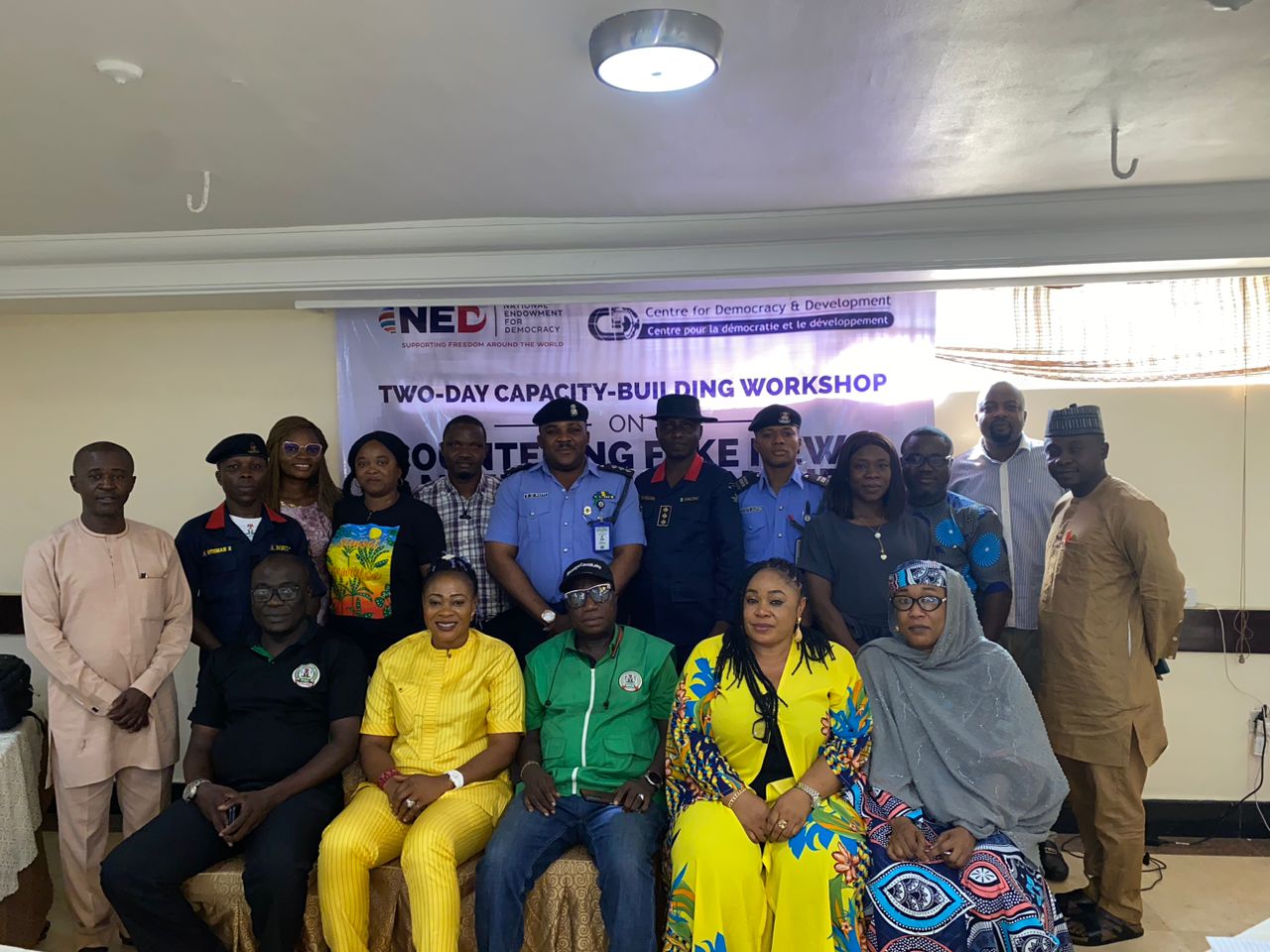
Centre for Democracy and Development (CDD), in partnership with National Endowment for Democracy (NED), has moved to equip journalists and civil society organisations in Lagos State with tools for combating fake news ahead of general elections.
This was at a two-day fact-checking workshop, which ended on Wednesday in Ikeja. The event addressed fake news, against the backdrop of new media technologies, without jeopardising the benefits of digital media towards maintaining a free and democratic system.
Speaking on fake news ecosystems, CDD Project Manager, Abiodun Banjoko, noted that the 21st Century has seen the weaponisation of information on an unprecedented scale. According to him, in Nigeria, misinformation distorts reality and changes how people perceive religion and ethnicity.
Participants were trained on how to use tools forensically, such as Google image search and Tineye to detect fake videos, tweets, pictures and news. Banjoko explained that while reporting election processes, participants must be non-partisan, fair, adhere to standards, and ensure transparency of sources, among others.
Speaking on fake news and its danger to peace, election and democracy, CDD Communications Lead, Armsfree Ajanaku, said, in Nigeria, the use of half-truths and non-rational arguments to manipulate public opinion, in pursuit of political objectives, is a growing threat.
“False information in Nigeria spreads through various channels, but social media provides the cheapest and quickest ways to access millions,” he noted.
To spot fake news or disinformation, Ajanaku urged the participants to look beyond headlines, check multiple credible sources, be cautious with what is shared, and seek the input of experts when in doubt about information.
Ajanaku urged journalists and media outlets to be committed to verifying information before reporting. He also charged the government to foster a thriving journalism sector and encourage citizens to read the news.
He added: “Online gender-based violence exists within a context similar to what happens in real life, which is just as destructive as offline violence. We now live in a virtual society, where offline violence has extended to online, which makes it easier for people to commit violence without consequences.
“Women are the main targets of online violence, especially the ones with voices, like female politicians, service personnel, women’s rights activists, journalists, women leaders, etc. As it is globally, Nigeria faces a worse case, due to our culturally sensitive environment.”



